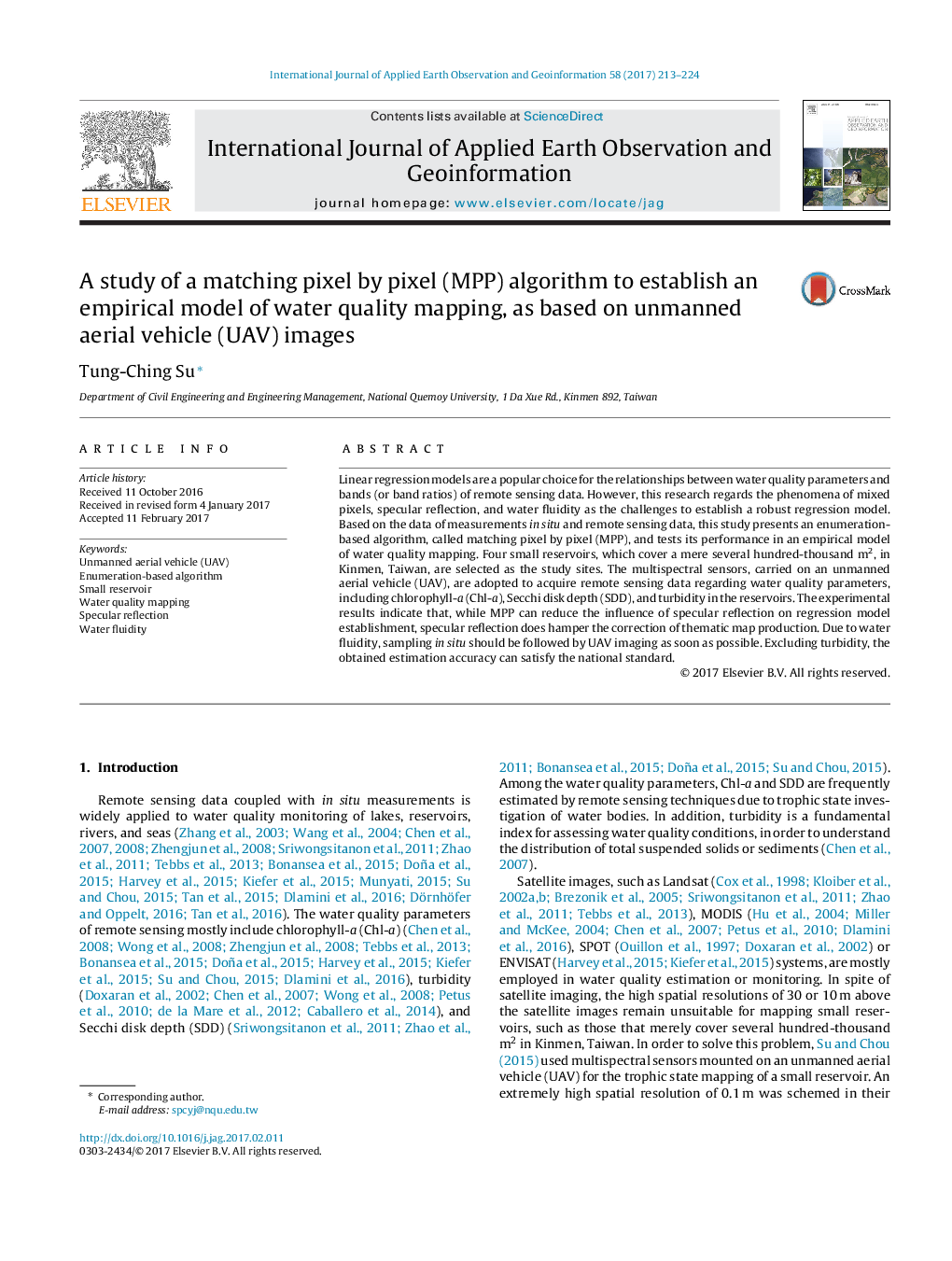| کد مقاله | کد نشریه | سال انتشار | مقاله انگلیسی | نسخه تمام متن |
|---|---|---|---|---|
| 5755461 | 1621799 | 2017 | 12 صفحه PDF | دانلود رایگان |
عنوان انگلیسی مقاله ISI
A study of a matching pixel by pixel (MPP) algorithm to establish an empirical model of water quality mapping, as based on unmanned aerial vehicle (UAV) images
دانلود مقاله + سفارش ترجمه
دانلود مقاله ISI انگلیسی
رایگان برای ایرانیان
کلمات کلیدی
موضوعات مرتبط
مهندسی و علوم پایه
علوم زمین و سیارات
کامپیوتر در علوم زمین
پیش نمایش صفحه اول مقاله

چکیده انگلیسی
Linear regression models are a popular choice for the relationships between water quality parameters and bands (or band ratios) of remote sensing data. However, this research regards the phenomena of mixed pixels, specular reflection, and water fluidity as the challenges to establish a robust regression model. Based on the data of measurements in situ and remote sensing data, this study presents an enumeration-based algorithm, called matching pixel by pixel (MPP), and tests its performance in an empirical model of water quality mapping. Four small reservoirs, which cover a mere several hundred-thousand m2, in Kinmen, Taiwan, are selected as the study sites. The multispectral sensors, carried on an unmanned aerial vehicle (UAV), are adopted to acquire remote sensing data regarding water quality parameters, including chlorophyll-a (Chl-a), Secchi disk depth (SDD), and turbidity in the reservoirs. The experimental results indicate that, while MPP can reduce the influence of specular reflection on regression model establishment, specular reflection does hamper the correction of thematic map production. Due to water fluidity, sampling in situ should be followed by UAV imaging as soon as possible. Excluding turbidity, the obtained estimation accuracy can satisfy the national standard.
ناشر
Database: Elsevier - ScienceDirect (ساینس دایرکت)
Journal: International Journal of Applied Earth Observation and Geoinformation - Volume 58, June 2017, Pages 213-224
Journal: International Journal of Applied Earth Observation and Geoinformation - Volume 58, June 2017, Pages 213-224
نویسندگان
Tung-Ching Su,